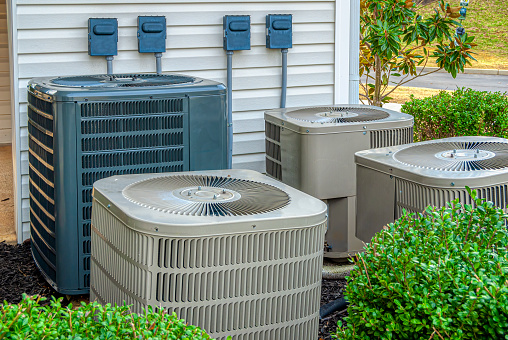What is an HVAC System and How Does It Work

It can even feel mystical sometimes; after all, all you have to do is touch a sensor, hit a button, or tweak a dial on your thermostat, and your home will instantly shift from too hot or too cold to the appropriate temperature.
That’s not magic, though; that’s the HVAC system, and while you likely don’t worry about it much, it’s one of the most important parts of the house. And you have to get regular services like HVAC cleaning in Roswell to maintain the system. You certainly wouldn’t like to stay there without it.
What is an HVAC system?
Despite its name, it has nothing to do with vacuuming. It basically refers to the three different functionalities that the system offers. Heating, ventilation, and air conditioning are the three functions of an HVAC system. HVAC sometimes can have a fourth character, and that is “R.” R stands for refrigeration. It’s normally exclusively used in business settings, though; let’s be honest, if you like to bake, serve a huge family, or just want to start stocking up on frozen items, a commercial-sized refrigerator can sound quite enticing.
What is the Process of Cooling and Heating
You can use a condenser, also known as a traditional air conditioning system, to cool some HVAC systems. Ironically, others use a heat pump to keep it cool. These take hot air from the inside of your house and transport it out in a similar manner. It’s what causes the interior temperature to drop.
Contrary to common assumption, air conditioning does not physically push cool air in; rather, it eliminates the hotter air. The major difference here between a heating system and a condenser is that a heat pump is also engaged in the process of warming the house when you wish to warm up the atmosphere within the house. A heat pump pulls warmer air from outside and brings it inside. A condenser only cools, so if you have one, you’ll have to rely exclusively on the furnace for warming.
It means that households with heating systems do not have traditional furnaces. On the other hand, many residents are choosing the dual systems, which include both heat pumps and furnaces. It is also possible to get a furnace without a heating system.
HVAC System Components
Your Heating and cooling system is made up of more than just furnaces, air conditioners, and heat pumps. HVAC systems include:
Air Exchanger
It is a vital part of any HVAC unit’s ventilation system. It is the responsibility of the air converter to swap stale air for fresh air. As a result, the air within your house is fresher than it would be otherwise. It may also aid in the reduction of allergies and the regulation of humidity. Is there an AM switch on the dashboard or panel in your car? It is an air exchanger, and it refers to air mode. Air duct cleaning in Roswell can be helpful to keep your system running smoothly.
Ducting and Vents/Registers
Regardless of technical specifics, the HVAC unit would be useless without vents and ducts. Ducts transport air to numerous places throughout the house, and vents/registers allow the air to enter a room to warm or cool it. It may seem obvious, but that isn’t always the case, at least with regards to ducting.
There are many different types of ductwork networks, and some of them are incompatible with particular air conditioners or water heaters (particularly in old houses), so if you’re thinking about getting a new HVAC unit, you should certainly look into duct compliance first.
Coolant and Evaporator Coils
You can see many significant components in air conditioners and heat pumps. One of them is a coolant and evaporator coil. Its function is to cool the refrigerant in the air conditioner so that it can cool your house when used in conjunction with a fan.
As bizarre as it may sound, you would never run out of coolant until there is a leakage in the port that contains it. Isn’t coolant, though, terrible for the environment? The prevailing opinion is yes if the coolant is freon. To that purpose, rather than freon, all AC units built in the last decade or so use a refrigerant called Puron.
Although outdated systems use Freon, you’ll need to buy a new one if you wish to change to Puron. It’s also worth noting that Freon is no longer available as new in the United States, which means you’ll have no option but to change the previous equipment if it breaks and runs out of Freon.
A Temperature Regulator
As you may know, a thermostat allows you to change and manage the room’s temperature. What you may not understand is that with certain contemporary HVAC systems, you’ll need to double-check that the thermostat you’re using is compatible with the existing unit.
Considering you have the option of choosing between such a smart thermostat, a digitized thermostat, and a traditional analog thermostat, always examine its capability.
Also Read: Comprehensive View of Forex Robots




